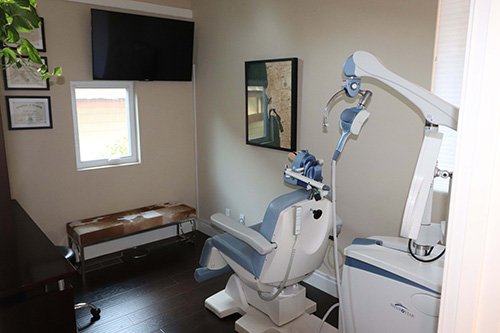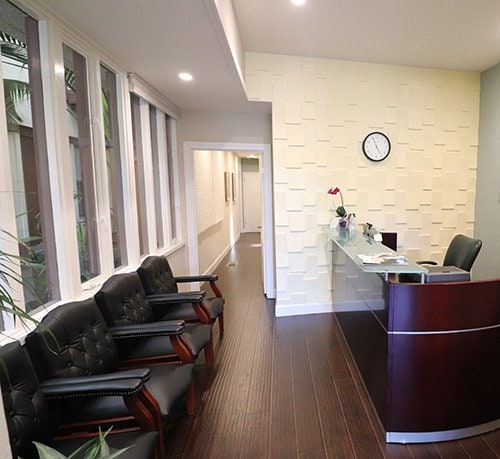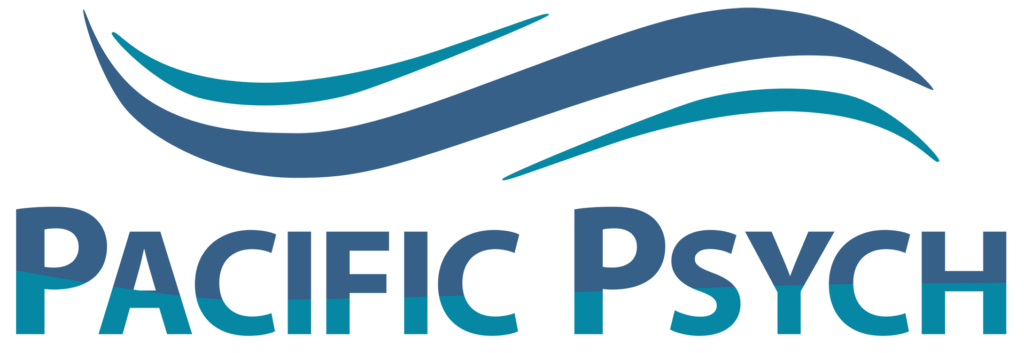Expert TMS Therapy in San Diego
What is TMS Treatment?
 Transcranial Magnetic Stimulation (TMS) uses a targeted magnetic field to stimulate areas of the brain that control mood and are thought to be underactive in people with depression or anxiety.
Transcranial Magnetic Stimulation (TMS) uses a targeted magnetic field to stimulate areas of the brain that control mood and are thought to be underactive in people with depression or anxiety.
Safe & Effective
TMS center services are FDA-approved TMS to treat patients suffering from depression who have not achieved satisfactory improvements from antidepressant medications. Over 1 million treatments have been performed on over 25,000 patients.
Long-lasting Symptom Relief
In an open-label study, 68% of the participants who were followed for a year still maintained the benefits of our sessions.
Medication-Free
TMS treatment center for depression is a precise medication-free outpatient easily conducted in our San Diego office and can be safely used with or without antidepressant medications. TMS is FDA-approved for the treatment of major depressive disorder (MDD) and obsessive-compulsive disorder (OCD).
Transcranial Magnetic Stimulation Is Non-Invasive
TMS treatment is a non-invasive procedure. You are awake and alert for the therapy and can engage in normal activities immediately after, with no activity restrictions.
No Medication Side Effects For Treatment for Depression
TMS therapy is free from the side effects that may occur with medications.
- No weight gain
- No sexual dysfunction
- No fatigue
The most common side effect of TMS therapies is pain or discomfort around the area, which usually goes away within a week.
TMS Is Generally Reimbursable With Insurance Companies
TMS treatment for neurological conditions Major Depressive Disorder (MDD) or Obsessive-Compulsive Disorder (OCD) is reimbursed by most private provider insurers. Our staff is experts at navigating the required approval process, and we typically can obtain approvals within one week for appropriate patients.
For Patients Paying Out of Pocket, We Keep Costs as Low as Possible
We provide a full nine-week course of TMS sessions at our San Diego location is approximately $7,000. As experts in the field, we have the experience to keep costs as low as possible, without compromising safety or effectiveness.
Theta Burst Stimulation (TBS)
In the United States, the treatment for depression involving TMS, which has received FDA approval, employs a method of repetitive, single-pulse stimulations known as rTMS. This protocol, which was FDA-approved for the treatment of depression in 2008, is safe, effective and well-tolerated. However, new TMS protocols continue to emerge.
In late 2018 TBS, also known as “Express TMS,” was FDA-approved for depression treatment.
Similar to traditional rTMS, TBS employs magnetic energy to activate the prefrontal cortex and alleviate symptoms of depression. The distinction between them lies in the mode of stimulation delivery. TBS administers stimuli in a distinct rhythm—quick successions of three pulse bursts at 50 Hz, reoccurring every 200 ms. This method ensures ongoing brain stimulation, unlike the conventional rTMS approach. Consequently, the duration of treatment is significantly shortened. Theta Burst Stimulation requires merely four minutes, and studies indicate it is just as effective, if not more, compared to the traditional protocols which last for more than 20 minutes.
TBS at Pacific Psych
TBS like TMS is used either as a stand-alone treatment or in conjunction with other treatments at our San Diego location, such as ketamine therapy. When combined with ketamine therapy, the likelihood of response and remission is dramatically improved.
TBS and TMS Share Several Benefits
- Offer highly effective technology (TMS), FDA-approved treatment for major depressive disorder
- Non-medication/non-invasive treatment
- No medication side effects
- Reimbursable help under most health insurance plans for those that qualify
- Can be used as a standalone treatment, or in conjunction with other treatments for depression such as psychiatric medications, psychotherapy, and ketamine therapy.
See Our Patient Testimonials
To learn more about TMS or TBS at Pacific Psych. schedule a consultation with Dr. Jake Hollingsworth at (858) 261-4622.
Contact Us Today: TMS Inquiry
Schedule Appointment
Our San Diego psychiatry is accepting new patients. Please call or email to schedule an appointment.
Office: (858) 261-4622
Email: Office@PacificPsychCenters.com
Contact Pacific Psych
Pacific Psych
317 14th Street, Suite A, Del Mar, California 92014
(858) 261-4622

